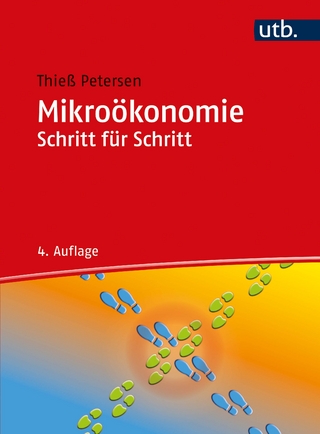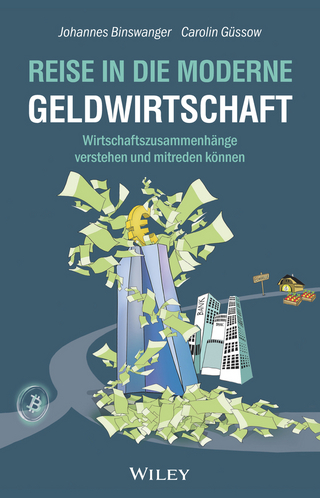
The Decline and Fall of Neoliberalism
Routledge (Verlag)
978-1-032-18187-5 (ISBN)
The Decline and Fall of Neoliberalism argues that the neoliberal era – starting after the collapse of the Bretton Woods system – is coming to an end. In the wake of the financial and economic crisis of 2008 and the outbreak of the pandemic in 2019, the doctrine outlined by monetarists appears to offer an inadequate response to the economic instability that characterises our contemporary world.
To deal with the fallout of these crises, central banks have stepped in as major regulators of the economic system through massive interventions to support both financial markets and public spending, marking a clean break with the traditional conception of their role as depoliticised actors. Is the resurgence of inflation a consequence of this reckless strategy over which they seem to have lost control? Or is it rather rooted in an outdated understanding of money and monetary policy? One thing is certain: a profound change in policy is emerging. The growing turmoil in the global economy and the environmental challenges that face us demand an urgent and comprehensive rethinking of the economic role of the state.
This book further develops the analysis presented in Populism and Neoliberalism and takes a closer look at the nature of neoliberalism as a political doctrine. Through this detailed description, it identifies the difficulties within economic thought that prevent it from responding appropriately to contemporary challenges. Drawing from the lessons of history, it proposes a renewed relationship between the state and the market that strikes a balance between planning and self-regulation. A post-neoliberal world is about to dawn, but its shape can still be determined by the path we choose to follow.
David Cayla is an Associate Professor of Economics and Vice-Dean of the Faculty of Law, Economics and Management at Angers University, France. His research focuses primarily on the history of economic thought and institutional economics. He has published several books in France, most notable of which are L’Économie du réel (De Boeck Supérieur, 2018) and La Fin de l’Union europénne (Michalon 2017, with Coralie Delaume) and a book called Populism and Neoliberalism (Routledge) available in both French and English. An active member of the French association of heterodox economists "Les Economistes atterrés", he defends an approach to economics that is more open to other social sciences and better equipped to engage with contemporary political issues.
Introduction: Does neoliberalism even exist?
1. Depoliticising money
2. Monetarism: One pillar of the neoliberal system
3. A system of regulated economies
4. The Neoliberal Revolution
5. Monetarism in a time of crisis
6. Doxa and praxis
Conclusion: What could a post-neoliberal world look like?
| Erscheinungsdatum | 17.04.2023 |
|---|---|
| Zusatzinfo | 7 Tables, black and white; 16 Line drawings, black and white; 16 Illustrations, black and white |
| Verlagsort | London |
| Sprache | englisch |
| Maße | 156 x 234 mm |
| Gewicht | 420 g |
| Themenwelt | Sozialwissenschaften ► Politik / Verwaltung |
| Wirtschaft ► Betriebswirtschaft / Management | |
| Wirtschaft ► Volkswirtschaftslehre ► Mikroökonomie | |
| ISBN-10 | 1-032-18187-7 / 1032181877 |
| ISBN-13 | 978-1-032-18187-5 / 9781032181875 |
| Zustand | Neuware |
| Informationen gemäß Produktsicherheitsverordnung (GPSR) | |
| Haben Sie eine Frage zum Produkt? |
aus dem Bereich


